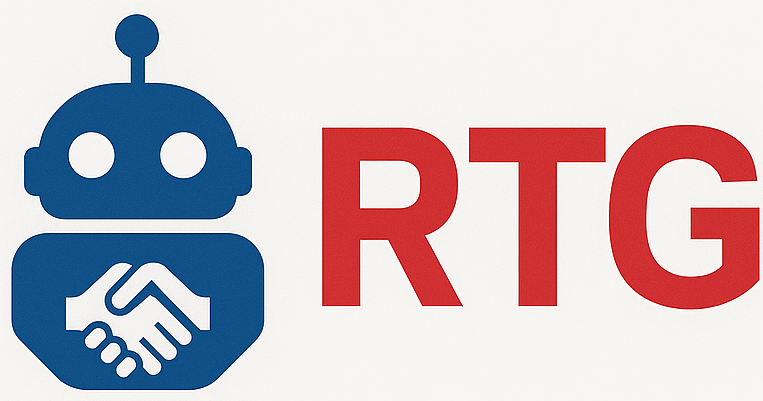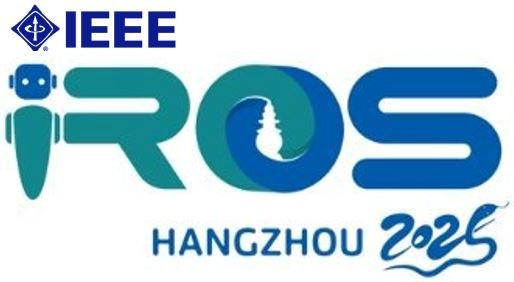
IEEE/RSJ International Conference on Intelligent Robots and Systems, Hangzhou, China, 19-25 October 2025
Workshop 2nd SIAV-FM2L
Safety of Intelligent and Autonomous Vehicles: Formal Methods vs. Machine Learning approaches for reliable navigation (SIAV-FM2L)
Table of content
- Forward
- Abstract
- Workshop content and expected impact
- Format of the papers / contributions
- Workshop program
- Short biography of the co-chairs
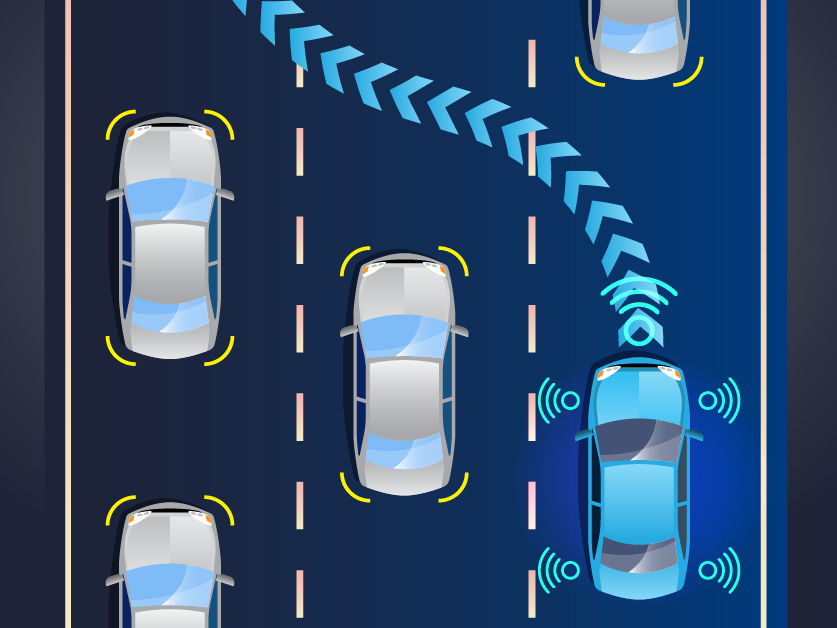 | 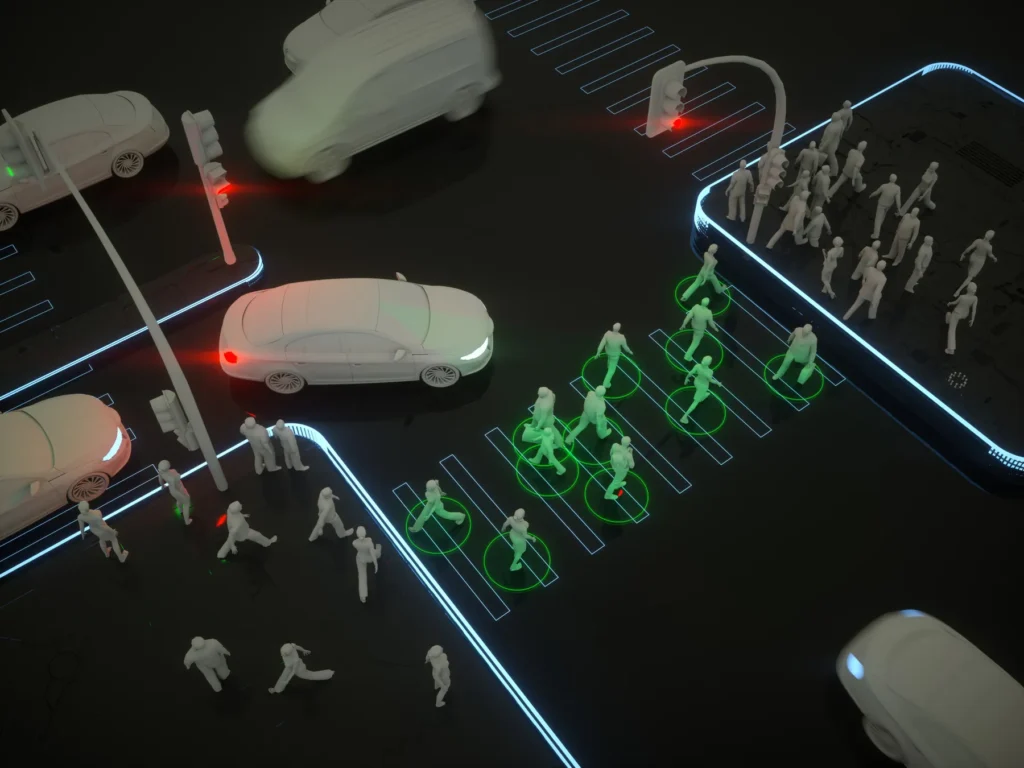 | 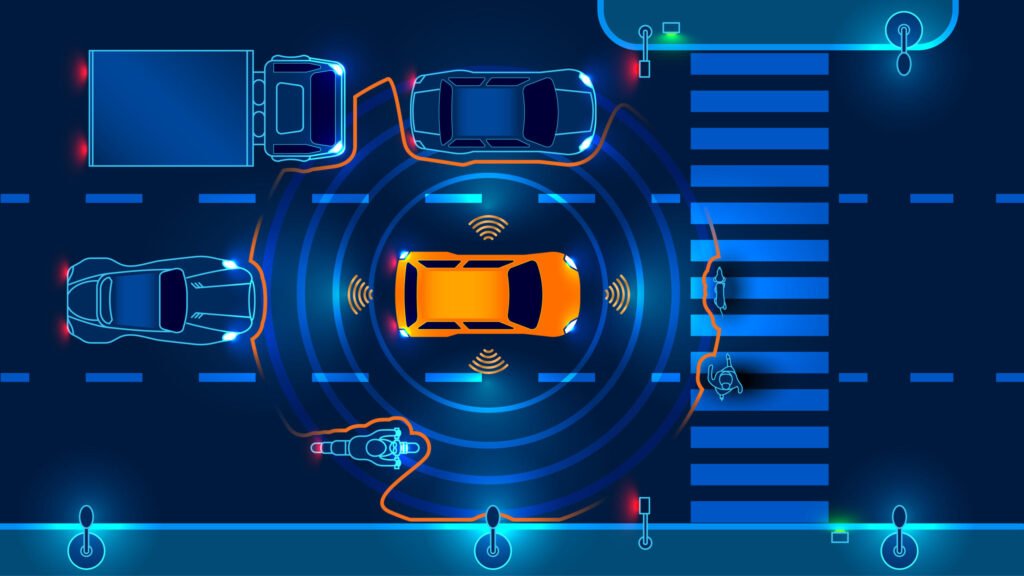 |
Forward
We are pleased to announce the second edition of SIAV-FM2L workshop (Safety of Intelligent and Autonomous Vehicles: Formal Methods vs. Machine Learning approaches for reliable navigation, https://shorturl.at/F4IW3), which will be held in conjunction with the IEEE/RSJ International Conference on Intelligent Robots and Systems (IROS 2025, 19-25 October, Hangzhou, China, https://www.iros25.org/). SIAV-FM2L workshop aims the presentation of cutting-edge research topics, new original theoretical achievements, practical results, and high-fidelity simulation protocols, with a focus on guaranteed safety and flexibility of maneuvering with Intelligent/autonomous vehicles (I/AV) in various transportation domains, and using different research methodologies: the formal and machine learning ones. Submissions illustrating combinations of these two general methodologies leading to synergetic results, to obtain robust and flexible navigation of I/AV in complex environments / scenarios, are in a special interest of the workshop.

Abstract
Automated driving systems have become one of the most exciting and important innovations in transportation history. Indeed, the challenge to have fully autonomous vehicles (AV) for passenger transportation is about to become a reality. Nevertheless, the diversity of driving conditions and situations which could be encountered by the AV may lead to unexpected events, and induce thus hazards. The efficiency of AVs is then subject to the capability of managing risks,while preserving the vehicles’ integrity, with respect to several aspects, such as: vehicle dynamics variations, reliability of sensor/perception information,and variation of driving and environmental conditions. The proposed workshop will permit us to discuss how to ensure a Long-Term Autonomy (LTA[1])of intelligent/autonomous vehicles (I/AV) while maintaining a high level of safety during the navigation process. Moreover, the workshop is expected to initiate interesting discussions about a possible generic design methodology closing the link between systemic formal approaches and Artificial Intelligence (AI) developmentsin order to efficiently and safely address I/AV navigation in complex environments/situations.
The workshop aims the presentation of cutting-edge research topics, new original theoretical achievements, practical results,and high-fidelity simulation protocols, with a focus on guaranteed safety and flexibility of maneuvering with I/AV in various transportation domains, and using different research methodologies: the formal and machine learning ones. Submissions illustrating combinations of these two general methodologies leading to synergetic results, to obtain robust and flexible navigation of I/AV in complex environments / scenarios, are in a special interest of the workshop.
[1]It is important to note that LTA means in the proposed project, that the vehicle can deal with a large variety of driving situations (e.g., navigation in dense urban traffic, round-about/intersection or unstructured area) and environment conditions (e.g., wet ground, fog conditions), without obliging the vehicle to stop or to delegate the driving to the person inside.

Workshop content and expected impact
After the success of the first edition of SIAV-FM2L Workshop, which took place in IROS’24 (Abu Dhabi, 14 October 2024), the second edition of SIAV-FM2L will take place in IROS’25. This half-day of interactions describes a new series of workshops, which aims to address the important topic of intelligent/autonomous vehicles’ (I/AV) safety insurance in any navigation context / environment (e.g., uncertain perception / localization; complex urban situations like roundabout or intersection crossing for instance; highway and connected cooperative vehicles, etc.). It is clear that in any practical scenario safety guarantee is among the main key properties required to have a large deployment of I/AVs in the near future, and to use them as a common and reliable transportation system.
The development of I/AV has made tremendous advances in the last decade. Several companies already deployed highly automated vehicles into a public road (e.g., Robotaxi of Waymo), and a lot of other companies have announced their deployment in the near future. However, safety guarantee, which is one of the key challenges to be addressed, limit drastically these ambitions to strictly limited use cases and operational domains. In order to ensure safe and flexible operation of automated vehicles in more extensive scenarios, comprehensive multimodal design approaches towards safety are required. We strongly believe that one of the promising ways to reach the mentioned objective can be obtained by a smart combination of formal methods and data-driven approaches when applied in a coherent, complementary, and synergistic manner. This important subject is of interest to both academia as well as industry, and it is expected during this workshop to share the different points of view by having presentations from both sides.
Therefore, the focus and the ambition of this workshop is to gather the communities, that use either formal (model-driven) methods or machine learning (data-driven) approaches to deal with this important subject, while emphasizing the strengths and weaknesses of each methodology. The possibility of creation of a tight and systemic link between formal and AI based approaches is among the main motivations of the proposed SIAV-FM2L workshop, which will allow the attendees to share different views on the same problem and initiating honest conversations about the safety of automated vehicles from both the academic and industrial points of view.
Even if the two considered methodologies (i.e., the formal and machine learning ones) could be applied to all the elementary components composing an overall I/AV control architecture (perception / localization / planning and control), the proposed workshop intended to focus on the integrated approaches, starting from the used perception modeling/features (even simple) and finishing on the control phase in order to show the impact of all the whole chain of decision-action process (and its interactions) to evaluate safety of the I/AV motion.
List of Topics:
The workshop will encourage contributions coming from applications of formal methods or machine learning approaches reporting on original research, work under development, experimental results and high-fidelity simulation protocols, related, but not limited, to one of the following topics for I/AV:
- Safety modeling, analysis, validation and testing
- Motion planning for safe maneuvering
- Control architecture design and standardization for flexible navigation and guidance
- Risk assessment and management under uncertainty
- Long-term autonomy
- Safety and flexibility in connected and cooperative I/AV
- Simulation benchmarking for characterizing safety
- Model-driven and data-driven methods increasing safety, reliability, and flexibility
- Safety in advanced driver assistance systems (ADAS)
- Perception, localization, and map-building methods for safe applications
- Applications of I/AV in the public, freight and agriculture transportation domains
- …
Keywords: Intelligent/autonomous vehicles; Safe maneuvering; Safety guarantees; Control architecture, Motion planning; Risk assessment and management; Long-term autonomy; Safe connected and cooperative vehicles; Model-based approaches; Data-driven approaches; Safety in ADAS.

Format of the papers / contributions (authors and keynote speakers)
NB : The speakers or panelists must register for the “workshop and tutorial” sessions while following the instructions on the main IROS 2025 website (https://www.iros25.org/Registration).
Papers should be prepared according to the IROS’25 final camera-ready format and should and should be at least 2 pages long.
For possible keynote speakers’ proposals, a short biography, a title, and an abstract are requested before September 5th.
Papers and keynote speakers’ proposals must be sent to Lounis ADOUANE by email at: lounis.adouane@hds.utc.fr
Important dates (for Poster session)
– Deadline for paper submission proposals: October 5th, 2025
– Notification of paper acceptance : October 8th, 2025
– Workshop date: October 20th, 2025 (PM)
Important dates
– Deadline for paper submission and keynote speakers’ proposals: September 5th, 2025
– Notification of paper acceptance (with review comments): September 20th, 2025
– Final paper submission: October 1st, 2025
– Workshop date: October 20th, 2025 (PM)
Proceedings and Special issue
The workshop proceedings will be published as a PDF file within the SIAV-FM2L workshop website.
Selected papers will be considered for extended versions for a special issue in International journals such as Journal of Intelligent & Robotic Systems (JINT, IF: 3.2) or Transactions on Intelligent Vehicles Transactions on Intelligent Vehicles (T-IV, IF: 14.3). We will issue an open call, submissions will go through a separate peer review process.
This workshop is organized in the framework of the IEEE Robotics and Automation’s Technical Committee on: Autonomous Ground Vehicles and Intelligent Transportation Systems.

Workshop program
It is given below the final program (maybe subject to small changes). The workshop will take place in 20th October 2025 (PM), in Room 103C. The summary of the program is given in the table below, and the details are given thereafter.
| 13:00 – 13:05 | Welcome & Introduction |
| 13:05 – 13:30 | Keynote speaker 1: Dr. Mauro Bellone Title : iseAuto as a Testbed for Safe Autonomous Driving: Bridging Formal Verification and Artificial Intelligence |
| 13:30 – 14:10 | Keynote speaker 2: Dr. Javier Ibanez-Guzman Title: The complexities of testing passenger vehicles: A practitioner’s perspective |
| 14:10 – 15:00 | Poster session: 1) Safe Reinforcement Learning with a Predictive Safety Filter for Motion Planning and Control: A Drifting Vehicle Example, Bei Zhou*, Baha Zarrouki+, Mattia Piccinini+, Cheng Hu*, Lei Xie and Johannes Betz+ *Industrial Control Technology, Zhejiang University, Hang zhou, China +Technische Universität München, Germany State Key Laboratory of 2) Proactive and Safe Trajectory Planning via a Reinforcement Learning–Optimization Hybrid, Yujia Lu* and Chong Wei+ *School of Traffic and Transportation, Beijing Jiaotong University, China +School of Mechanical and Electrical Engineering, Hainan University, Hainan, China 3) Towards Safe Maneuvering of Double-Ackermann-Steering Robots with a Soft Actor-Critic Framework, Kohio Deflesselle*, Mélodie Daniel*, Aly Magassouba+, Miguel Aranda# and Olivier Ly* *LaBRI, Université de Bordeaux, France +Cyber-physical Health and Assistive Robotics Technologies (CHART), University of Nottingham # I3A, Universidad de Zaragoza, Spain. 4) Deep Reinforcement Learning-Based Navigation Method for Mobile Robots in Dense and Dynamic Pedestrian Environments, Hongyu Zhou, Runhua Wang and Xuebo Zhang, Tianjin Key Laboratory of Intelligent Robotics; Institute of Robotics and Information Automation, School of Artificial Intelligence, Nankai University, Tianjin, China 5) Game-Theoretic Integration in Imitation Learning for Safe Lane-Changing, Noorsyamimi Abdur Ajak*, Fanta Camara+, Owais Ahmed Malik# and Wee Hong Ong*, *Universiti Brunei Darussalam, Jalan Tungku Link, Brunei +Institute for Safe Autonomy, University of York, United Kingdom #Faculty of Engineering & Computing, Atlantic Technological University, Letterkenny, Ireland 6) Safe Autonomous Navigation under Uncertainty: A Multi-Risk Control Optimization Framework, Emmanuel Alao*+, Lounis Adouane* and Philippe Martinet+, *Heudiasyc UMR CNRS / UTC ; +Acentauri INRIA, France 7) Robust Statistics vs. Machine Learning vs. Bayesian Inference: Insights into Handling Faulty GNSS Measurements for Robust Vehicle Localization, Haoming Zhang, Institute of Automatic Control, RWTH, Aachen University, Aachen, Germany |
| 15:00 – 15:30 | Coffee Break (30mn) |
| 15:30 – 16:10 | Keynote speaker 3: Dr. Shuo Feng Title: Towards provable probabilistic safety for scalable embodied AI systems |
| 16:10 – 16:35 | Keynote speaker 4: Dr. Arun Kumar Singh Title: Sample Efficient Risk Estimation through Maximum Mean Descrepancy |
| 16:35 – 17:00 | Panel discussions |
| 17:00 | Closing |
Keynote speakers
Dr. Javier Ibanez-Guzman (part of the organizing committee), Corporate Expert Autonomous Systems, Renault S.A., France

Keynote title: The complexities of testing passenger vehicles: A practitioner’s perspective
Modern passenger vehicles integrate increasingly advanced automation and are deployed across diverse geographical regions. Ensuring the reliability and safety of driving assistance functions and automated systems presents significant challenges. Proving ground tests alone are insufficient, and public road testing is inherently limited. Moreover, the widespread adoption of data-driven methods, particularly in perception systems, has introduced additional complexities. This talk will explore how these challenges are being addressed through a combination of testing methodologies, highlighting approaches used to validate the functional and safe operation of automated driving systems.
Biography: cf. below.
Dr. Shuo Feng, Associate Professor with the Department of Automation, Tsinghua University, China

Keynote title: Towards provable probabilistic safety for scalable embodied AI systems
Embodied AI systems, comprising AI models and physical plants, are increasingly prevalent across various applications. Due to the rarity of system failures, ensuring their safety in complex operating environments remains a major challenge, which severely hinders their large-scale deployment in safety-critical domains, such as autonomous vehicles, medical devices, and robotics. While achieving provable deterministic safety–verifying system safety across all possible scenarios–remains theoretically ideal, the rarity and complexity of corner cases make this approach impractical for scalable embodied AI systems. To address this challenge, we introduce provable probabilistic safety, which aims to ensure that the residual risk of large-scale deployment remains below a predefined threshold. Instead of attempting exhaustive safety proof across all corner cases, this paradigm establishes a probabilistic safety boundary on overall system performance, leveraging statistical methods to enhance feasibility and scalability. A well-defined probabilistic safety boundary enables embodied AI systems to be deployed at scale while allowing for continuous refinement of safety guarantees. Our work focuses on three core questions: what is provable probabilistic safety, how to prove the probabilistic safety, and how to achieve the provable probabilistic safety. By bridging the gap between theoretical safety assurance and practical deployment, our work offers a pathway toward safer, large-scale adoption of embodied AI systems in safety-critical applications.
Biography: Shuo Feng received the bachelor’s and Ph.D. degrees from the Department of Automation, Tsinghua University, China, in 2014 and 2019, respectively. He was a Post-Doctoral Research Fellow with the Department of Civil and Environmental Engineering and also an Assistant Research Scientist with the University of Michigan Transportation Research Institute (UMTRI), University of Michigan, Ann Arbor. He is currently an Associate Professor with the Department of Automation, Tsinghua University. His research interests include the development and validation of safety-critical machine learning, particularly for connected and automated vehicles. He was a recipient of the Best Ph.D. Dissertation Award from the IEEE Intelligent Transportation Systems Society in 2020, the ITS Best Paper Award from the INFORMS TSL society in 2021, MIT TR35 China, and DAMO Academy Young Fellow. He is an Associate Editor of IEEE TRANSACTIONS ON INTELLIGENT VEHICLES and an Academic Editor of the Automotive Innovation.
Dr. Mauro Bellone, Associate Professor, FinEst Centre for Smart Cities, Tallinn University of Technology, Tallinn, Estonia
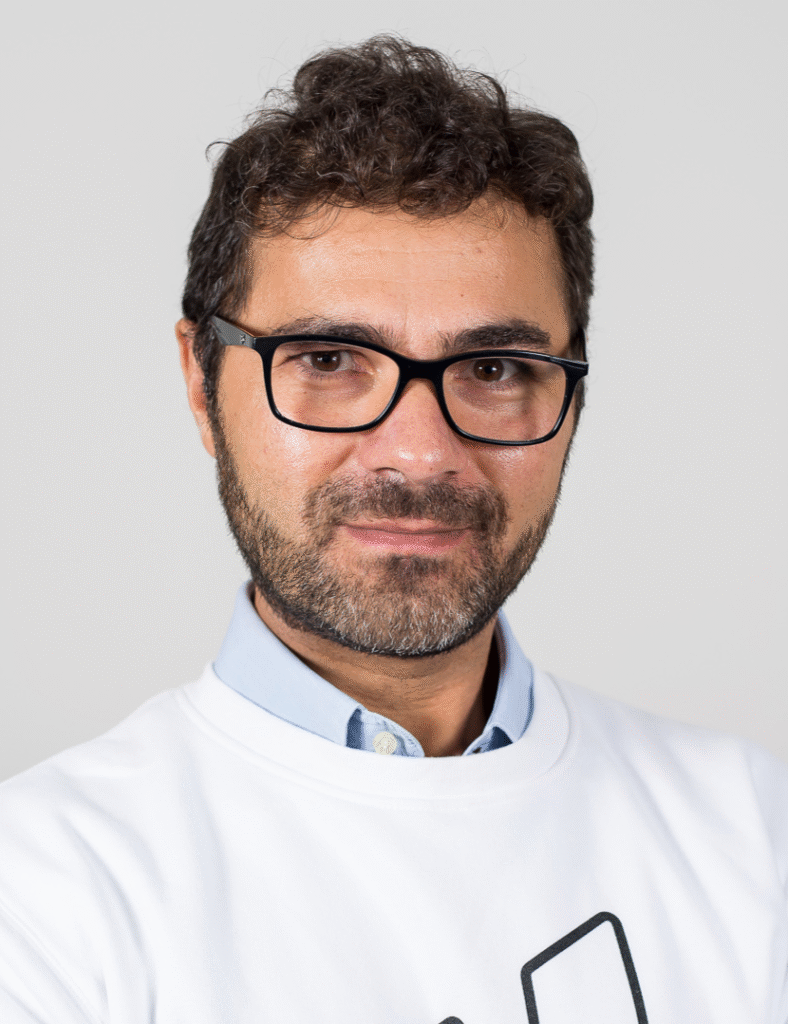
Title : iseAuto as a Testbed for Safe Autonomous Driving: Bridging Formal Verification and Artificial Intelligence
My presentation will address the broader challenges of ensuring safety in intelligent and autonomous vehicles, with a focus on bridging formal verification methods and machine learning approaches to achieve reliable automated driving. Drawing on our research contributions on perception, verification and validation methodologies, data space technologies for automated driving, digital twins, and cybersecurity. I will outline a systematic view on safety that spans from algorithms to real-world deployment. The iseAuto shuttle, developed in both version 1 and the recently released version 2, will serve as a central case study to illustrate how these research outcomes translate into practice and how open-source platforms can accelerate validation in real operational environments. One of the core ideas, in our validation and verification methods is to bring physical models (Newtonian laws) back into the process building physically informed perception models that can be verified and thus resulting in explainable and verifiable automated driving.
Biography: I am an Adjunct Professor at Tallinn University of Technology (TalTech) and Associate Professor at Universitas Mercatorum (Italy) focusing on Robotics and Artificial Intelligence. At TalTech, in Estonia, I actively support the Autolab, where we conceived and developed the iseAuto autonomous shuttle currently at its second version, and contributes to the Finest Center for Smart Cities, advancing studies on intelligent mobility in urban environments. Before joining TalTech, I spent several years at Chalmers University of Technology in Sweden, where I collaborated closely with Volvo on automated driving projects, gaining first-hand experience in bridging academic research with industrial applications. Over the past decade, my research has focused on automated driving, perception methods, with particular emphasis on integrating machine learning and formal methods for safe and reliable navigation.
Dr. Arun Kumar Singh, Associate Professor, Institute of Technology, University of Tartu, Estonia
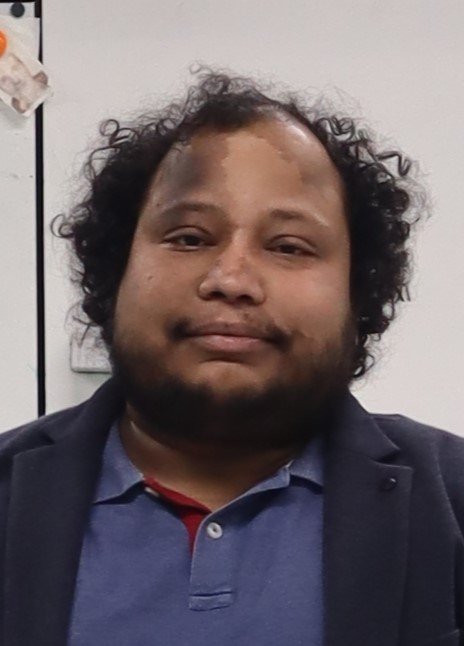
Title: Sample Efficient Risk Estimation through Maximum Mean Descrepancy
For an autonomous vehicle to operate safely, it must be able to accurately estimate the collision risk of any planned trajectory, accounting for uncertainty in its own motion and in the environment. The challenge is that when this uncertainty is complex and non-Gaussian, we can no longer rely on a simple analytical formula to calculate risk. This forces us to use sampling-based methods, where sample efficiency becomes paramount. In this talk, I will introduce our novel approach to this problem, which leverages Distribution Embedding in a Reproducing Kernel Hilbert Space and the Maximum Mean Discrepancy (MMD) to create a highly sample-efficient risk estimator. We have validated this technique in two critical applications: first, planning around dynamic obstacles with multi-modal future predictions, and second, stochastic Model Predictive Control under uncertain dynamics. Our results consistently show that this MMD-based method is significantly more sample-efficient than the widely-used Conditional Value at Risk (CVaR) benchmark.
Biography: Arun Kumar Singh leads the AKS Lab (https://sites.google.com/view/akslab/home) at the Institute of Technology, where he is also an Associate Professor. At the moment, the lab houses 6 PhD students, 2 Postdocs, and 1 Research Engineer. He performs fundamental research in algorithmic foundations of robotics, control systems, and machine learning. He and his lab have made impactful contributions in developing optimization algorithms and learning-based robot planning and control in safety-critical applications through the use of implicit layers embedded neural networks, and planning under uncertainty. He has a strong publication record in premier journals such as IEEE Robotics and Automation Letters, IEEE Transactions on Control Systems Technology, IEEE Transactions on Automation Science and Engineering, and premier conferences such as ICRA, IROS, CDC. Arun has been PI for several national and EU projects with the most recent being XSCAVE(xscave.eu), that seeks to develop deployable AI for heavy machineries.

Short biography of the co-chairs
 Lounis Adouane has been a Full Professor since September 2019 at Heudiasyc – UTC (Université de Technologie de Compiègne, France), and he was Associate Professor between 2006 and 2019 at the Institut Pascal (IP) – Polytech Clermont-Ferrand. In IP, he led between 2018 and 2019 the ISPR group (80 persons, Images, Perception Systems and Robotics). Dr. Adouane is an active member of the international community of mobile robotics/autonomous vehicles, he is a member of the Technical Committee of Intelligent Autonomous Vehicles – IFAC (as Industry Vice Chair) and he serves as a Senior Editor Board Member of the Journal of Intelligent and Robotic Systems. Dr. Adouane had the opportunity to visit several institutions/laboratories, such as 6 months in 2014 at Cranfield and Kingston Universities (United Kingdom) and 2 months in 2018 at KIT (Karlsruhe Institute of Technology, Germany). In 2015, he obtained from Blaise Pascal University an HDR (habilitation to steer research in Robotics). He has participated in more than 80 program committees of international conferences and workshops. Further, Dr. Adouane supervised (or currently supervising) 19 PhD Thesis (all linked to mobile robotics and/or intelligent vehicles). Dr. Adouane’s current research focuses on Intelligent Vehicles, more specifically; he is working on two main topics: 1. Autonomous navigation of mobile robots/vehicles in complex environments and 2. Cooperative control architectures for multi-robot/vehicle systems. He is the author/coauthor of more than 150 and 2 books on these topics. More specifically, his main research includes planning and control, hybrid (continuous/discrete) and hybrid (reactive/cognitive) multi-controller architectures, Lyapunov-based synthesis and stability, obstacle avoidance, cooperative multi-robot systems, navigation in formation, artificial intelligence for optimization and control (e.g., Markov decision process, Bayesian decision network and Multi-agent systems), energy management (optimal control and Neuro-Fuzzy approaches), ADAS (Advanced Driver Assistance Systems, ecoACC, ecoStop&Go) and multi-robot/agent simulation.
Lounis Adouane has been a Full Professor since September 2019 at Heudiasyc – UTC (Université de Technologie de Compiègne, France), and he was Associate Professor between 2006 and 2019 at the Institut Pascal (IP) – Polytech Clermont-Ferrand. In IP, he led between 2018 and 2019 the ISPR group (80 persons, Images, Perception Systems and Robotics). Dr. Adouane is an active member of the international community of mobile robotics/autonomous vehicles, he is a member of the Technical Committee of Intelligent Autonomous Vehicles – IFAC (as Industry Vice Chair) and he serves as a Senior Editor Board Member of the Journal of Intelligent and Robotic Systems. Dr. Adouane had the opportunity to visit several institutions/laboratories, such as 6 months in 2014 at Cranfield and Kingston Universities (United Kingdom) and 2 months in 2018 at KIT (Karlsruhe Institute of Technology, Germany). In 2015, he obtained from Blaise Pascal University an HDR (habilitation to steer research in Robotics). He has participated in more than 80 program committees of international conferences and workshops. Further, Dr. Adouane supervised (or currently supervising) 19 PhD Thesis (all linked to mobile robotics and/or intelligent vehicles). Dr. Adouane’s current research focuses on Intelligent Vehicles, more specifically; he is working on two main topics: 1. Autonomous navigation of mobile robots/vehicles in complex environments and 2. Cooperative control architectures for multi-robot/vehicle systems. He is the author/coauthor of more than 150 and 2 books on these topics. More specifically, his main research includes planning and control, hybrid (continuous/discrete) and hybrid (reactive/cognitive) multi-controller architectures, Lyapunov-based synthesis and stability, obstacle avoidance, cooperative multi-robot systems, navigation in formation, artificial intelligence for optimization and control (e.g., Markov decision process, Bayesian decision network and Multi-agent systems), energy management (optimal control and Neuro-Fuzzy approaches), ADAS (Advanced Driver Assistance Systems, ecoACC, ecoStop&Go) and multi-robot/agent simulation.
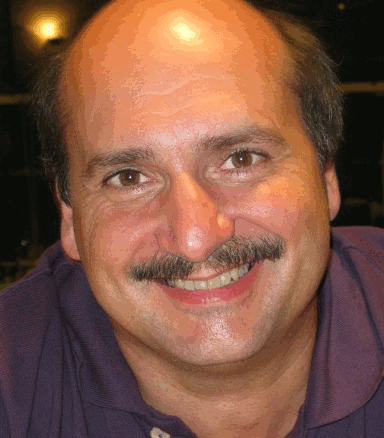 Philippe Martinet graduated from the CUST, Clermont-Ferrand, France, in 1985 and received the Ph.D. degree in electronics science from the Blaise Pascal University, Clermont-Ferrand, France, in 1987. From 1990 til 2000, he was assistant Professor with CUST in the Electrical Engineering Department, Clermont-Ferrand. From 2000 until 2011, he has been a Professor with Institut Français de Mécanique Avancée (IFMA), Clermont-Ferrand. He was performing research at the Robotics and Vision Group of LASMEA-CNRS, Clermont-Ferrand. In 2006, he spent one year as a visiting professor in ISRC at the Sungkyunkwan university in Suwon, South Korea. He was the leader of the group GRAVIR (over 74 person) from 2001 til 2006. From 1997 until 2011, he led the Robotic and Autonomous Complex System team (over 20 persons). From 2008 until 2011, he co-lead a Joint Unit of Technology called « Robotization in meet Indutry », and the Korea France Joint Research Center on Cognitive Personal Transport Service Robot in Suwon (South Korea). In September 2011, he moves to Ecole Centrale de Nantes and make his research at IRCCYN in the robotics team. Until 2015, he stayed associated researcher to Pascal Institute in Clermont-Ferrand. Since 2017, IRCCyN becomes LS2N. He was deputy head of the ARMEN Team. Since November 2017, he moved to Inria Sophia Antipolis in the Lagadic Project for a 5 years period. From April 2018 til March 2020, he was the leader of the new team called CHORALE (Collaborative and HeterOgeneous Robots interActing in Live Environment). Since May 2021, he is member of the new INRIA/CNRS joint Team named ACENTAURI. He was coordinator of the EMJMD EMARO+ from 2014 until 2016. He was in charge of the robotics speciality in the ARIA master. From 2015 til 2019, he was deputy head of the French robotics research Network. His research interests include : VISIR : VIsual ServoIng of Robot Visual Servoing (Position, Image and Hybrid Based, Omnidirectional), Multi-Sensor Based Control, Force-Vision Coupling, Robots (Manipulator, Mobile, Aerial), AGV : Autonoumous Guided Vehicle Control (Non Linear, Adaptive, Predictive, Robust), Enhanced Mobility (Sliding and Slipping), Uncertain Dynamics, Monitoring, Robots (Mobile, AGV, All Terrain vehicles, Agricultural Vehicles, Platoon, Multi-Robot System), MICMAC : Modeling, Identification and Control of complex MAChines Kinematic Identification, Dynamic Identification, High Dynamic Modeling, Dynamic Control, Vision based Control of Parallel Robot, Robots (Parallel Robot, High Speed Machine Tools) , RCA : Redundancy, Control and Autonomy Humanoid robot control, Multi Arms control, Redundancy and polymorphism, Robots (Humanoid robots, Service Robots, Polymorph Robots), Others interests Active Vision and Sensor Integration, Visual Tracking, and Parallel Architecture for Visual Servoing Applications. From 2012 til 2023, he was the corresponding chair of the RAS-TC on AGV & ITS. From 1990, he has driven four habilitations, 27 (+ 13 as co-supervisor) past Ph.d students, plus 3 (+ 4 as co-supervisor) in progress, 34 Master students and 6 Post-doc. For the same period, he is author and co-authors of more than three hundred sixty references 62 IJ, 2 NJ, 226IC, 27 NC, 52 IW, 1 NW, and 8 book Chapters.
Philippe Martinet graduated from the CUST, Clermont-Ferrand, France, in 1985 and received the Ph.D. degree in electronics science from the Blaise Pascal University, Clermont-Ferrand, France, in 1987. From 1990 til 2000, he was assistant Professor with CUST in the Electrical Engineering Department, Clermont-Ferrand. From 2000 until 2011, he has been a Professor with Institut Français de Mécanique Avancée (IFMA), Clermont-Ferrand. He was performing research at the Robotics and Vision Group of LASMEA-CNRS, Clermont-Ferrand. In 2006, he spent one year as a visiting professor in ISRC at the Sungkyunkwan university in Suwon, South Korea. He was the leader of the group GRAVIR (over 74 person) from 2001 til 2006. From 1997 until 2011, he led the Robotic and Autonomous Complex System team (over 20 persons). From 2008 until 2011, he co-lead a Joint Unit of Technology called « Robotization in meet Indutry », and the Korea France Joint Research Center on Cognitive Personal Transport Service Robot in Suwon (South Korea). In September 2011, he moves to Ecole Centrale de Nantes and make his research at IRCCYN in the robotics team. Until 2015, he stayed associated researcher to Pascal Institute in Clermont-Ferrand. Since 2017, IRCCyN becomes LS2N. He was deputy head of the ARMEN Team. Since November 2017, he moved to Inria Sophia Antipolis in the Lagadic Project for a 5 years period. From April 2018 til March 2020, he was the leader of the new team called CHORALE (Collaborative and HeterOgeneous Robots interActing in Live Environment). Since May 2021, he is member of the new INRIA/CNRS joint Team named ACENTAURI. He was coordinator of the EMJMD EMARO+ from 2014 until 2016. He was in charge of the robotics speciality in the ARIA master. From 2015 til 2019, he was deputy head of the French robotics research Network. His research interests include : VISIR : VIsual ServoIng of Robot Visual Servoing (Position, Image and Hybrid Based, Omnidirectional), Multi-Sensor Based Control, Force-Vision Coupling, Robots (Manipulator, Mobile, Aerial), AGV : Autonoumous Guided Vehicle Control (Non Linear, Adaptive, Predictive, Robust), Enhanced Mobility (Sliding and Slipping), Uncertain Dynamics, Monitoring, Robots (Mobile, AGV, All Terrain vehicles, Agricultural Vehicles, Platoon, Multi-Robot System), MICMAC : Modeling, Identification and Control of complex MAChines Kinematic Identification, Dynamic Identification, High Dynamic Modeling, Dynamic Control, Vision based Control of Parallel Robot, Robots (Parallel Robot, High Speed Machine Tools) , RCA : Redundancy, Control and Autonomy Humanoid robot control, Multi Arms control, Redundancy and polymorphism, Robots (Humanoid robots, Service Robots, Polymorph Robots), Others interests Active Vision and Sensor Integration, Visual Tracking, and Parallel Architecture for Visual Servoing Applications. From 2012 til 2023, he was the corresponding chair of the RAS-TC on AGV & ITS. From 1990, he has driven four habilitations, 27 (+ 13 as co-supervisor) past Ph.d students, plus 3 (+ 4 as co-supervisor) in progress, 34 Master students and 6 Post-doc. For the same period, he is author and co-authors of more than three hundred sixty references 62 IJ, 2 NJ, 226IC, 27 NC, 52 IW, 1 NW, and 8 book Chapters.
 Johannes Betz studied automotive engineering at Coburg University of Applied Sciences (B. Eng., 2013) and at the University of Bayreuth (M. Sc., 2013) with a focus on electric drive systems and software development. From 2013 to 2018, Johannes was a research assistant at the Technical University of Munich where he received his Dr.-Ing. degree in 2019 on the topic of « Evaluation of an intelligent fleet dispatching for mixed vehicle fleets ». From 2018-2020 he was a postdoc at the Department of Automotive Engineering at TUM where he founded the TUM Autonomous Motorsport Team, which successfully participated in the autonomous racing series Roborace and Indy Autonomous Challenge. From 2020 to 2022, he was a postdoctoral fellow at the University of Pennsylvania, USA, where he worked in the xLab for Safe Autonomous Systems. In 2023, he was appointed as Rudolf Mößbauer Professor at the Technical University of Munich where he holds the Autonomous Vehicle Systems Professorship as part of the Department of Mobility Systems.
Johannes Betz studied automotive engineering at Coburg University of Applied Sciences (B. Eng., 2013) and at the University of Bayreuth (M. Sc., 2013) with a focus on electric drive systems and software development. From 2013 to 2018, Johannes was a research assistant at the Technical University of Munich where he received his Dr.-Ing. degree in 2019 on the topic of « Evaluation of an intelligent fleet dispatching for mixed vehicle fleets ». From 2018-2020 he was a postdoc at the Department of Automotive Engineering at TUM where he founded the TUM Autonomous Motorsport Team, which successfully participated in the autonomous racing series Roborace and Indy Autonomous Challenge. From 2020 to 2022, he was a postdoctoral fellow at the University of Pennsylvania, USA, where he worked in the xLab for Safe Autonomous Systems. In 2023, he was appointed as Rudolf Mößbauer Professor at the Technical University of Munich where he holds the Autonomous Vehicle Systems Professorship as part of the Department of Mobility Systems.
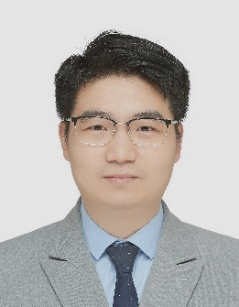 Xuebo Zhang received the B.Eng. degree in Automation from Tianjin University in 2006, China, and the Ph. D. degree in Control Theory and Control Engineering from Nankai University in 2011, China. From July 2011, he joined the Institute of Robotics and Automatic Information Systems (IRAIS), Nankai University, China. In December 2018, he was promoted to Professor, and he is currently the vice dean of College of Artificial Intelligence, deputy head of IRAIS and also the deputy head of Tianjin Key Laboratory of Intelligent Robotics (TJKLIR), Nankai University, China. His research interests include autonomous robots, including robust localization and mapping, planning and control with focus on time-optimal planning and visual servo control, reinforcement learning and intelligent game. In these areas, he published more than 100 journal papers. He was awarded the Tianjin Science Fund for Distinguished Young Scholars. He has also won the First Prize for Tianjin Science and Technology Progress, the First and Second Prizes for Tianjin Natural Science Award and the First Prize for WU WEN JUN AI Natural Science Award, the Second Prize for National Teaching Achievements, and the Baosteel Outstanding Teacher Award. He is a senior member of IEEE, and member of ASME. He serves as the Technical Editor of IEEE/ASME Transactions on Mechatronics, Associate Editor for ASME Journal of Dynamic Systems, Measurement and Control. He serves as the organization chair of IEEE-CYBER 2018, General Co-Chair of IEEE-CYBER 2017, and he will serve as the program chair of IEEE RCAR 2019.
Xuebo Zhang received the B.Eng. degree in Automation from Tianjin University in 2006, China, and the Ph. D. degree in Control Theory and Control Engineering from Nankai University in 2011, China. From July 2011, he joined the Institute of Robotics and Automatic Information Systems (IRAIS), Nankai University, China. In December 2018, he was promoted to Professor, and he is currently the vice dean of College of Artificial Intelligence, deputy head of IRAIS and also the deputy head of Tianjin Key Laboratory of Intelligent Robotics (TJKLIR), Nankai University, China. His research interests include autonomous robots, including robust localization and mapping, planning and control with focus on time-optimal planning and visual servo control, reinforcement learning and intelligent game. In these areas, he published more than 100 journal papers. He was awarded the Tianjin Science Fund for Distinguished Young Scholars. He has also won the First Prize for Tianjin Science and Technology Progress, the First and Second Prizes for Tianjin Natural Science Award and the First Prize for WU WEN JUN AI Natural Science Award, the Second Prize for National Teaching Achievements, and the Baosteel Outstanding Teacher Award. He is a senior member of IEEE, and member of ASME. He serves as the Technical Editor of IEEE/ASME Transactions on Mechatronics, Associate Editor for ASME Journal of Dynamic Systems, Measurement and Control. He serves as the organization chair of IEEE-CYBER 2018, General Co-Chair of IEEE-CYBER 2017, and he will serve as the program chair of IEEE RCAR 2019.
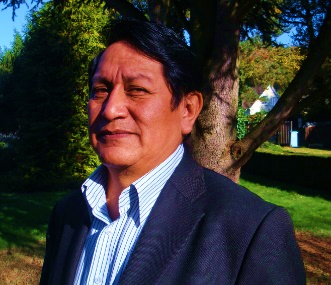 Dr. Javier Ibañez-Guzmán earned his M.S.E.E. from the University of Pennsylvania on a Fulbright Scholarship and his Ph.D. from the University of Reading on a SERC-UK Fellowship. In 2011, he was a Visiting Scholar at UC Berkeley, working on connected vehicle applications. He is currently a corporate expert on autonomous systems at Renault S.A., leading efforts in the verification of advanced driving assistance systems and autonomous vehicle technologies. He also represents his country in the ISO standards organization on Safety and AI and serves as Vice-Chair of the IEEE ITS Society Standards Committee, leading work on metadata for road accidents as part of proposed guidelines. He serves as domain editor for the IEEE IROS conference and member of several TC in different robotics and intelligent vehicles conferences. Dr. Ibañez-Guzmán supervises industry-sponsored PhD students in Intelligent Vehicles research. Previously, he was a Senior Scientist at the Singapore Institute of Manufacturing Technology (SimTech), where he pioneered autonomous ground vehicle research, and an Adjunct Associate Professor at Nanyang Technological University (NTU). He holds several patents and publications.
Dr. Javier Ibañez-Guzmán earned his M.S.E.E. from the University of Pennsylvania on a Fulbright Scholarship and his Ph.D. from the University of Reading on a SERC-UK Fellowship. In 2011, he was a Visiting Scholar at UC Berkeley, working on connected vehicle applications. He is currently a corporate expert on autonomous systems at Renault S.A., leading efforts in the verification of advanced driving assistance systems and autonomous vehicle technologies. He also represents his country in the ISO standards organization on Safety and AI and serves as Vice-Chair of the IEEE ITS Society Standards Committee, leading work on metadata for road accidents as part of proposed guidelines. He serves as domain editor for the IEEE IROS conference and member of several TC in different robotics and intelligent vehicles conferences. Dr. Ibañez-Guzmán supervises industry-sponsored PhD students in Intelligent Vehicles research. Previously, he was a Senior Scientist at the Singapore Institute of Manufacturing Technology (SimTech), where he pioneered autonomous ground vehicle research, and an Adjunct Associate Professor at Nanyang Technological University (NTU). He holds several patents and publications.

